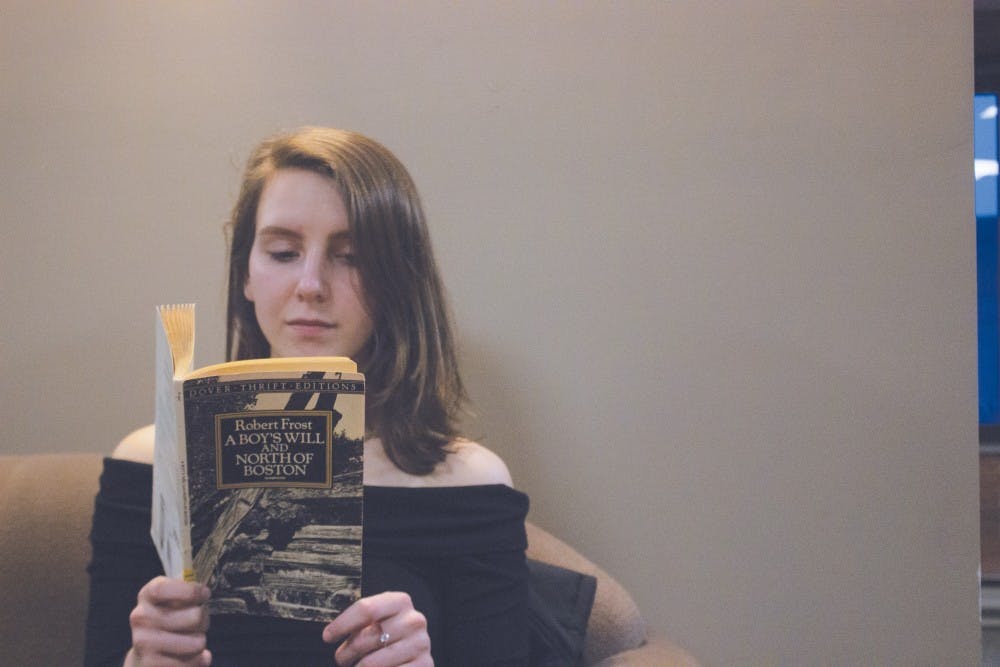Chrysa Keenon | Echo
E. Cummings. Emily Dickinson. Robert Frost. What do all these dead people have in common?
They were all poets. And the work they completed is relevant to us today, even as media-hungry college students.
A lot of people get turned off by the notion of poetry. It brings to mind ugly thoughts of confusing classes we were forced to endure in high school where poems were written by someone we don't know with a funny name. But according to the book "Can Poetry Matter," by poet Dana Gioia, poetry is an art that is alive and well with more and more literary journals being founded and published every day. It's not going away any time soon. Now, you might be wondering why I'm urging you, a random Taylor student who isn't even quite sure why they're reading this opinion piece, to read a poem. Let me shed some light on that, friend.
Adrian Matejka, the Poet Laureate of Indiana, said that poetry is one of the oldest forms of communication out there. Before there was the written word people were reciting poems to each other to remember history, entertain, and express ideas. Because of its timelessness, it will always have a place in our lives.
"...It is our most essential public art and there is room in it for everyone," Matejka said. "It's cheap to create and easily available. Once people accept that there is no right or wrong in poetry and there are no secret handshakes or initiation rituals necessary to writing poetry, creation naturally follows. And through that creation comes a kind of fundamental communication. What can be more direct than speaking heart to heart the way poems do?"
Poetry usually speaks directly from the heart of the author, expressing an idea that wouldn't have been heard otherwise due to a number of barriers, including culture, gender and class, to name a few. Just think of the impact the words of Langston Hughes or Maya Angelou had in the hands of someone outside the African American culture. Poetry is a form of nonviolent battle of intellect, challenging the perspectives of the reader in an artistic way. We should all engage in this "fight," by reading one poem at a time. I recommend signing up for daily poems using the Poetry Foundation app.
But, don't take my advice too quickly - literally. Reading a poem once is a lot like reading a tweet and making a quick decision on whether or not you agree with the person's statement. It's something dangerous, especially in the age of instant knowledge. I believe reading poetry is important for us because it urges us to sit still, take in the words of the writer, and digest them. We could potentially be missing out on an idea or concept that is completely new to us.
I think poet Matthew Zapruder makes the best argument for why we should read poetry in his book, "Why Poetry."
"We desperately need information, and stories, and the news, and essays and everything else, not just for the information they give us, but, even more important, for the experience of being with a mind thinking clearly, understanding the world so that we can better understand it too," Zapruder said. "But we desperately need poetry, for something else…Poetry pushes away some of our usual ways of usual language, of thinking, in order to lead us up to those moments together, so in the moment of reading, and perhaps right after, we can feel and know something we otherwise could not."





